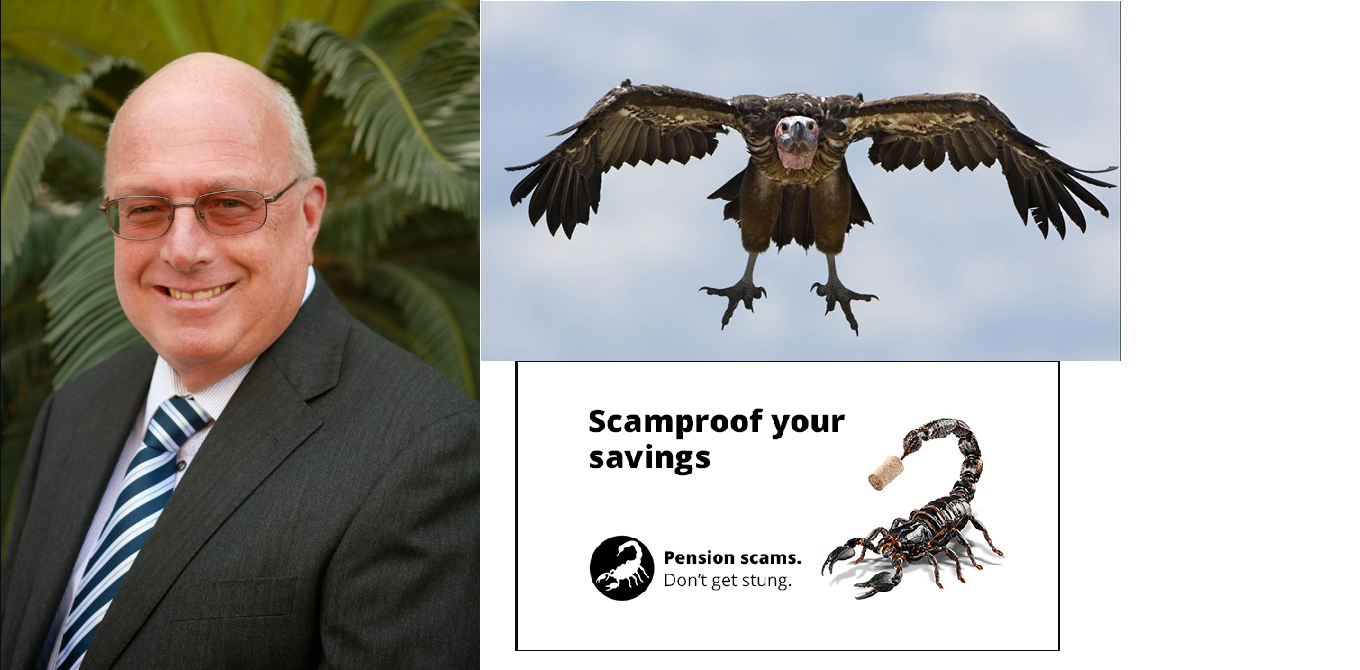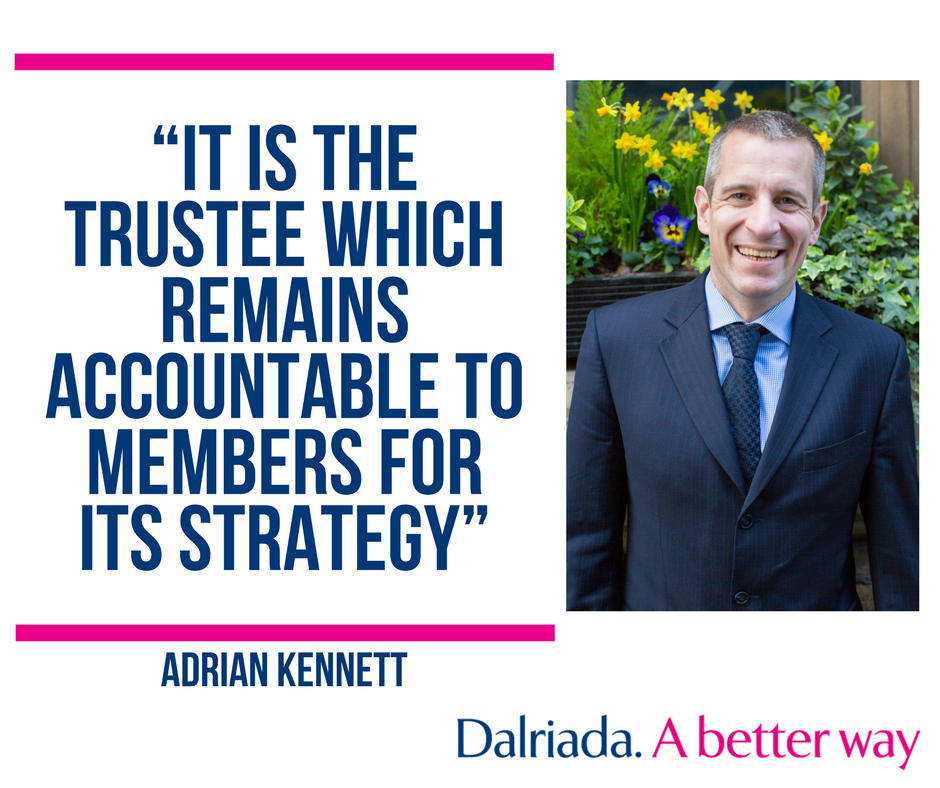
Knowing how to spot a scammer is half the battle in the fight against pension and investment scams. And my idol and hero in this fight is Darren Cooke of Red Circle Financial Planning. Armed with his petition calling for a cold-calling ban, he quickly became a t.v. star and National celebrity.
UPDATE: Cold-calling has still not been fully banned!! (20/11/2018)
Last week, on Monday 19th June 2017 (the week of the dreaded Ark trial) I had the privilege to attend the Great Pension Transfer Debate in Peterborough – organised by the amazing Al Rush and chaired by the awesome Henry Tapper. There I met a few people I already knew but also got to meet Darren Cooke in person and tried hard not to graze my knees as I groveled humbly before him. I also met some other wonderful professionals and heard some wonderful speakers – not the least of which were Sir Steve Webb and Michelle Cracknell.
But – and I mean no disrespect to the event and it’s organisers – all the excellent things which were said during the presentations depended entirely on the quality and honourability of the advice given. With only one notable exception, the event was attended by the ethical, qualified, regulated cohort of the profession. But, of course, out in the field there are sharks and shysters by the dozen – both in the UK and offshore.
In fact, this event was a world away from the world I live and work in. The attendees of this event were the cream of the financial services profession; those who pride themselves in being ethical, honest and conscientious. Most of the people there already had reputations for maintaining the highest possible standards of professional excellence, respecting the law and regulations, and actually caring about their clients. But I felt like a fish out of water, because generally I am dealing with criminals who have deliberately and callously ruined thousands of lives – some of whom are now, thank goodness, under official investigation by the SFO.
I asked the question “could all the scammers identify themselves” – and while this produced a few chuckles, it produced not a single (or the single) hand. And thereby lies the problem: how does the public distinguish between the ethical guys and the scammers? The scammers wear the same clothes; talk the same talk; have the same leather-bound portfolios and briefcases and sport the same smart hair cuts. They probably have more go-faster stripes and fluffy dice on their Aston Martins, but other than that they are indistinguishable from the good guys.
So, those in the know probably understand how to check qualification and regulation at the drop of a hat – but how does the ordinary man in the street – or on the Clapham Omnibus – know how to do that? Does the public know that there are a few – very few I would add – regulated and qualified firms and individuals in the UK who are scammers? (Ok, there are masses offshore, but let’s concentrate just on our mainland for the time being).
And even if a member of the public does know how to do that, do they have any idea what else to check or verify? Again, the answer is: of course not. So why don’t we start with the basics: the FCA register. That ought to tell the enquirer whether a firm is regulated – but that is part of the problem: regulated for what exactly? A firm which is regulated for insurance mediation is not regulated for pension or investment advice. But the ordinary man in the street does not understand that. Then you’ve got qualifications; looking up an individual on the CII register might show up a “student” member, but a member of the public might not know that is not the same thing as a qualified member.
But then you have firms which are FCA regulated but which are still scammers – albeit very few to my knowledge (but still enough to cause sufficient damage to large numbers of victims). And, of course, offshore it is simply “open season”.

Rather than trying to figure out how to spot a scammer, perhaps we should have a go at deciding what constitutes a scam and work backwards from there. The Cambridge dictionary defines a scam as “an illegal plan for making money, especially one that involves tricking people“
The Business Dictionary defines a scam as “A fraudulent scheme performed by a dishonest individual, group, or company in an attempt to obtain money or something else of value. Scams traditionally resided in confidence tricks, where an individual would misrepresent themselves as someone with skill or authority, i.e. a doctor, lawyer, investor”
The classic financial services scam consists of an individual who purports to be a qualified adviser who is part of a firm which is licensed in the appropriate jurisdiction to provide the advice required – normally something to do with pensions and/or investments. Then the adviser, who has by now claimed to be “fully” qualified and regulated, will sell the unsuspecting client a scheme and/or investment which is not appropriate for their agreed risk profile. Often the word “independent” has gone out of the window, because the adviser will merely invest the client into whatever pays the adviser himself the most commission – and sometimes that is even his own fund for which he is promoter or distributor.
There are many variations on this theme – and many peripheral scammers providing cold-calling, lead generation and marketing services and loan facilities as well as spurious “introducers” which pose as quasi advisers. And then there are the accountants who sell tax-avoidance investment schemes and employee benefit trusts – resulting in heavy losses and tax liabilities. And then there are the UCIS providers peddling such rubbish such as collapsible holiday flats in an obscure part of Africa; oblong bits of tarmac not too far from an airport; truffle tree plantations; recycling inventions and empty tin cans.
If we keep it simple for now: how does the ordinary man in the street or on the Bakerloo Line check out a UK-based financial adviser? First check his qualifications; second check out that his firm is regulated by the FCA to provide the service being sought i.e. pension and/or investment advice; third ask for evidence of professional indemnity insurance; fourth check the solvency of the firm.
If the advisory firm goes bust and the client loses a large amount of money, the maximum the client can claim from the Financial Services Compensation Scheme is £50,000 for investments. The best place to check solvency is Companies House where you can look up a company’s accounts and see how profitable and solvent it is. And then ask yourself whether you want to take financial advice from a firm which can’t even look after it’s own finances.
One example is an advisory firm in Guildford which has been trading for 21 years. For twelve of those years the company has made a loss. On total turnover of £11 million since it started trading, it has made a total profit of £36 thousand during the entire period. Would you want that firm to advise you on your finances?
So, my advice is check, check and check again. And when you think you have exhausted all the checks, get a second opinion. The information is out there – it is just a question of knowing where and how to look for it; what questions to ask and how to understand the answers. And then you’ll be a man, my friend. SMILEY FACE 🙂



